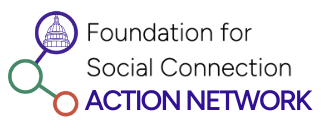In today’s fast-paced and technology-driven world, the value of genuine human connections cannot be overstated. Our social health plays a critical role in shaping our mental well-being but is often overlooked. However, organizations like the American Counseling Association, Mental Health America, and the HHS Office of Minority Health brought awareness to this issue by releasing a wealth of resources for National Minority Mental Health Awareness Month this July. To build on this momentum and continue raising awareness, this blog explores the profound interplay between social health, social isolation, loneliness, and the importance of fostering inclusive communities for minority mental health.
Understanding Social Health
Social health refers to our ability to form and maintain meaningful relationships with others. These connections act as a powerful buffer against stress, anxiety, and depression. As social beings, we thrive when we feel connected, supported, and understood by those around us. Social health goes beyond just the number of friends we have; it involves the quality and depth of those relationships.
The Impact of Social Isolation and Loneliness
For many minority individuals, experiences of social isolation and loneliness can be exacerbated by systemic discrimination, prejudice, and limited representation in society. A study done by the Cigna group found that individuals of underrepresented racial groups are more likely to be lonely, with 75% of Hispanic adults and 68% of Black/African American adults classified as lonely compared to 58% of the total adult population. The sense of being disconnected or misunderstood can lead to a vicious cycle of declining mental health. Research has consistently shown that chronic loneliness can be as detrimental to health as smoking or obesity, and it can increase the risk of developing mental health conditions.
Embracing Minority Mental Health Awareness Month
Minority Mental Health Awareness Month is an opportune time to acknowledge the unique challenges faced by marginalized communities regarding mental health. By commemorating this month, we aim to destigmatize mental health issues within these communities and promote inclusive conversations about mental well-being.
Breaking Barriers: Fostering Inclusive Communities
To combat social isolation and loneliness, we must work together to create more inclusive and understanding communities. Here are some ways we can achieve this:
- Cultivate Empathy: Listening and understanding others’ experiences can help bridge the gap between communities. Empathy allows us to offer support and validate the struggles faced by minority individuals.
- Representation Matters: Increasing representation of minority voices in all aspects of society, including media, healthcare, and leadership positions, can foster a sense of belonging and empowerment.
- Safe Spaces: Establishing safe spaces where individuals can openly discuss their mental health challenges without judgment can encourage seeking help and support.
- Cultural Sensitivity: Healthcare professionals and institutions should adopt culturally sensitive practices to address the specific needs of minority communities.
- Community Engagement: Encourage participation in community events, workshops, and activities to promote social interactions and a sense of belonging.
- Technology as an Ally: Leverage technology to build online support networks, connect people with similar experiences, and access mental health resources tailored to minority communities.
As we continue to celebrate Minority Mental Health Awareness Month each July, let us remember that we are all part of a vast and diverse human tapestry. Social health is a cornerstone of mental well-being, and combating social isolation and loneliness can significantly impact the mental health outcomes of minority communities. By fostering inclusive communities, embracing empathy, and breaking down barriers, we can build a society that uplifts and supports the mental health of all its members. Together, let us stand in solidarity with one another, leaving no one to navigate the challenges of mental health alone.
The Foundation for Social Connection (F4SC) was founded in 2020 with the vision for all Americans to have the opportunities and evidence-based support necessary for a socially connected life. F4SC engages in education, increases public awareness, promotes innovative research, and spurs the development and implementation of evidence-based models that address social isolation and loneliness and promote social connection.

